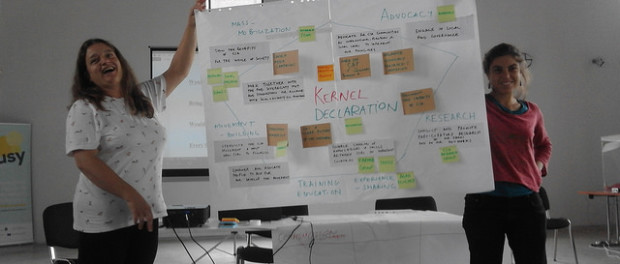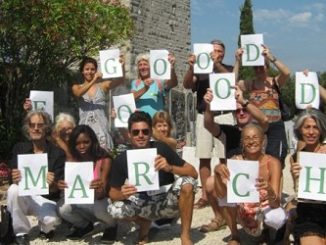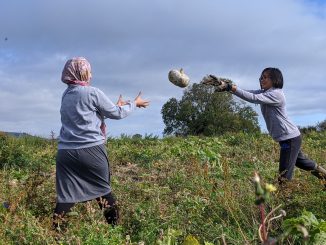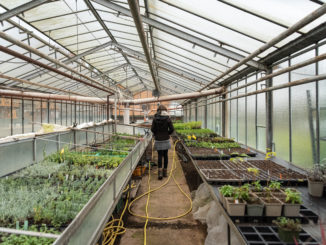Community Supported Agriculture network Urgenci held their 3rd European CSA meeting last weekend in Ostrava, Czech Republic. Below is the Declaration adopted in full. Here is Urgenci’s report on the event. ARC2020’s Oliver Moore was there too. Declaration to download as PDF.

PREAMBLE
All over Europe, people are coming together to take control of our food systems, from production to distribution to consumption. We are building systems centered on our local communities. We are joining forces to achieve food sovereignty, by claiming our right to define our own food and agricultural systems.
The time is ripe to address the disastrous effects of the industrial food system. Food is too important to merely treat it as a commodity. The Community Supported Agriculture (CSA) movement generates practical, inclusive solutions to the food crises. We are many, varied and united. We are stepping up in solidarity– taking responsibility – to create socially inclusive, economically viable and environmentally sustainable food systems. Hundreds of thousands of people in Europe have already proven that CSA works, by creating a variety of practices, initiatives and networks based on common values. Building upon the existing charters and experiences, this declaration aims to lay down the common ground for this CSA movement to flourish.
DEFINITION
Community Supported Agriculture (CSA) is a direct partnership based on the human relationship between people and one or several producer(s), whereby the risks, responsibilities and rewards of farming are shared, through a longterm, binding agreement.
CSA GUIDING PRINCIPLES
CSA is not a static model. Like a garden it is dynamic: it evolves and grows through daily care. Each CSA partnership has autonomy. We also agree on these basic principles as our common ground to grow the CSA movement.
• Responsible care for the soil, water, seeds and the other commons through the agroecological principles and practices as found in this declaration and the Nyeleni Declaration 2015
• Food as a common good not a commodity.
• Human scale production rooted in local realities and knowledges.
• Fair working conditions and decent income for all involved.
• Respect for the environment and animal welfare.
• Fresh, local, seasonal, healthy and diverse food accessible to all.
• Community building through direct and long term relationships with shared responsibility, risks and rewards.
• Active participation based on trust, understanding, respect, transparency and cooperation.
• Mutual support and solidarity beyond borders.
BUILD – DEVELOP – EMPOWER
We want to build a strong coalition of CSAs and CSA networks across Europe to:
• Strengthen the CSA movement and help new CSAs to flourish.
• Enable sharing of knowledge and skills between CSAs in different countries.
• Conduct and promote participatory research on our farms and in our networks.
• Empower and educate people to act for and develop the movement
• Show the benefits of CSA for the whole of society.
• Advocate for CSA communities at international, European and local level to implement our principles.
• Engage in local food governance.
• Work together with the food sovereignty movement and strengthen our alliance with social and solidarity economy movements.
We are a grassroots movement: we believe that the power of CSA is in pragmatic, everyday action and face-to-face relationships. We are connecting with each other, with the producers in our communities, and with the living soil beneath our feet. This is our Common Ground.
Adopted by 3rd European Meeting of CSA on 17th September in Ostrava, Czech Republic





